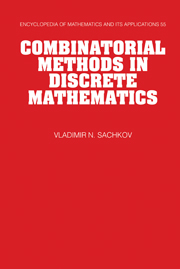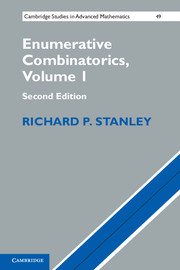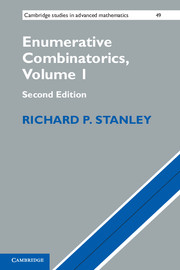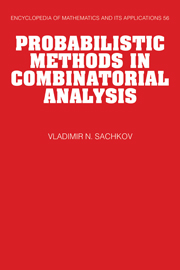Combinatorial Methods in Discrete Mathematics
Originally published in 1996, this is a presentation of some complex problems of discrete mathematics in a simple and unified form using an original, general combinatorial scheme. The author's aim is not always to present the most general results, but rather to focus attention on ones that illustrate the methods described. A distinctive aspect of the book is the large number of asymptotic formulae derived. Professor Sachkov begins with a discussion of block designs and Latin squares before proceeding to treat transversals, devoting much attention to enumerative problems. The main role in these problems is played by generating functions, which are considered in Chapter 3. The general combinatorial scheme is then introduced and in the last chapter Polya's enumerative theory is discussed. This is an important book, describing many ideas not previously available in English; the author has taken the chance to update the text and references where appropriate.
- Never available before in English
- Interesting approach gives unified and simple approach
- Lots of results given explicitly, so useful as reference
Reviews & endorsements
Review of the hardback: ' … a very enjoyable and brisk introduction to the exciting fields of enumerative and probabilistic combinatorics'. B. Bollobás, Bulletin of the London Mathematical Society
Review of the hardback: ' … for the serious student of generating functions and asymptotic techniques it provides an account of the work of Kolchin (who did the translation), the author and others which is not otherwise readily available in English.' I. Anderson, Bulletin of the Edinburgh Mathematical Society
Product details
March 2011Adobe eBook Reader
9780511884894
0 pages
0kg
This ISBN is for an eBook version which is distributed on our behalf by a third party.
Table of Contents
- Preface
- Preface to the English edition
- Introduction
- 1. Combinatorial configurations
- 2. Transversals and permanents
- 3. Generating functions
- 4. Graphs and mappings
- 5. The general combinatorial scheme
- 6. Polya's theorem and its applications
- Bibliography
- Index.









